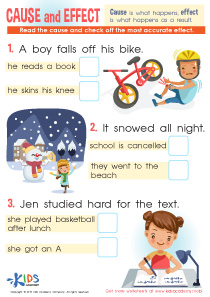Vocabulary expansion Normal Reading Non-Fiction Worksheets for Ages 3-7
7 filtered results
-
From - To
Unlock the potential of young readers with our Vocabulary Expansion Non-Fiction Worksheets, designed specifically for ages 3-7. These engaging and interactive worksheets make learning enjoyable while enhancing vocabulary skills through exciting non-fiction content. Each activity is crafted to introduce children to new words, broaden their understanding, and boost reading comprehension in a fun and accessible way. Perfect for parents, teachers, and caregivers, these resources support early literacy development and encourage a love for reading. Explore our collection today and empower your child with the language skills they need to thrive in school and beyond!
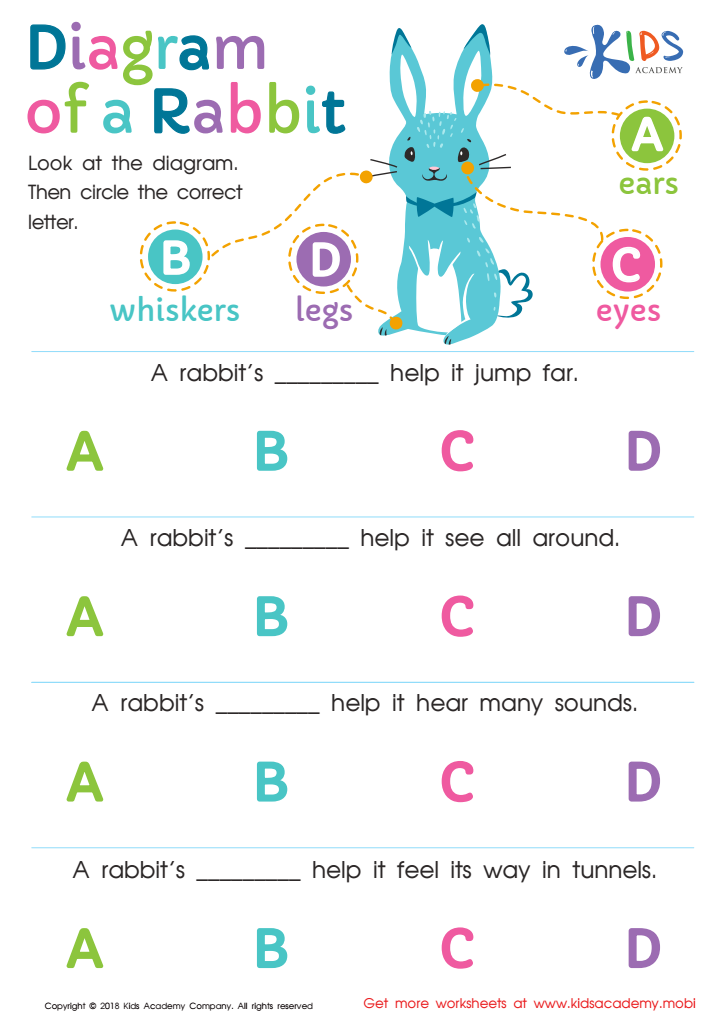

Diagram of a Rabbit Worksheet
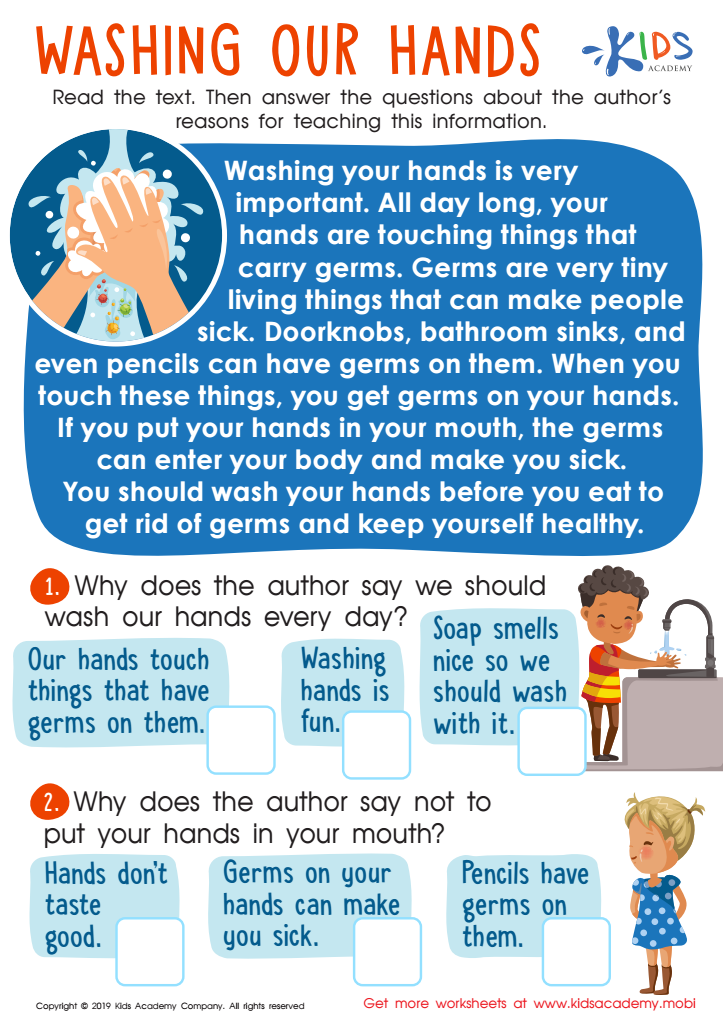

Washing Our Hands Worksheet
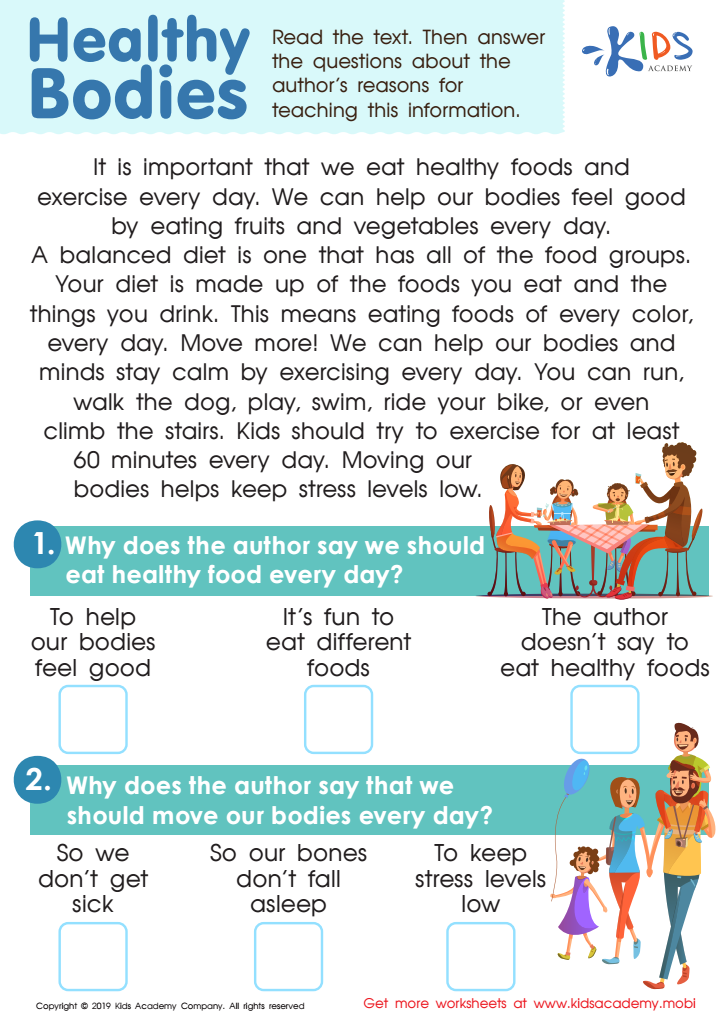

Healthy Bodies Worksheet
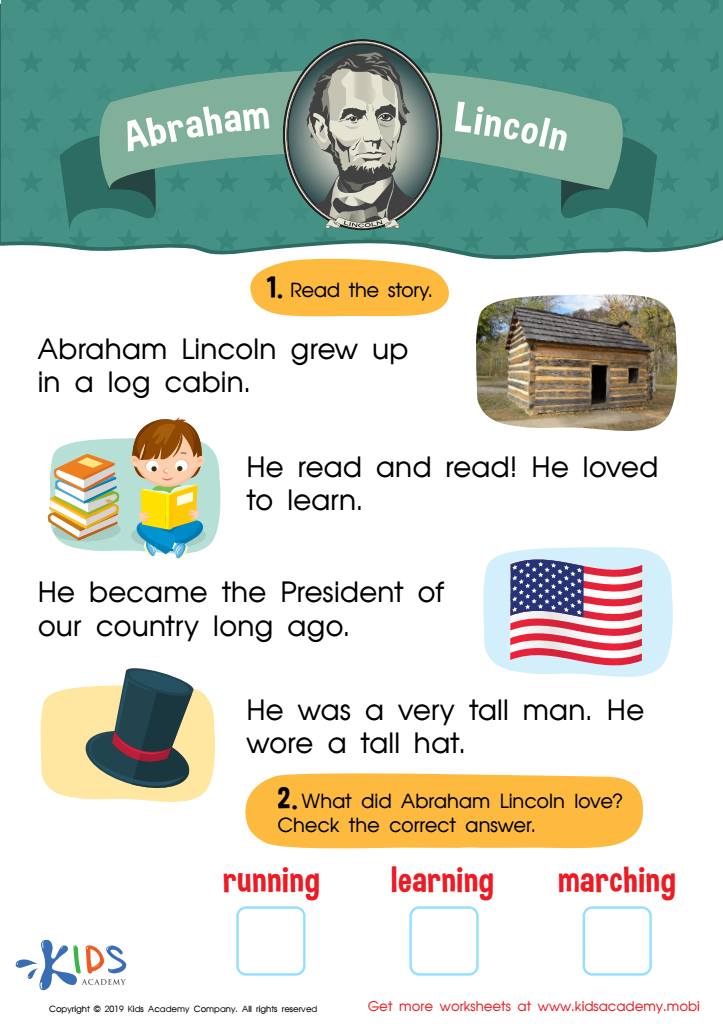

Abraham Lincoln Worksheet
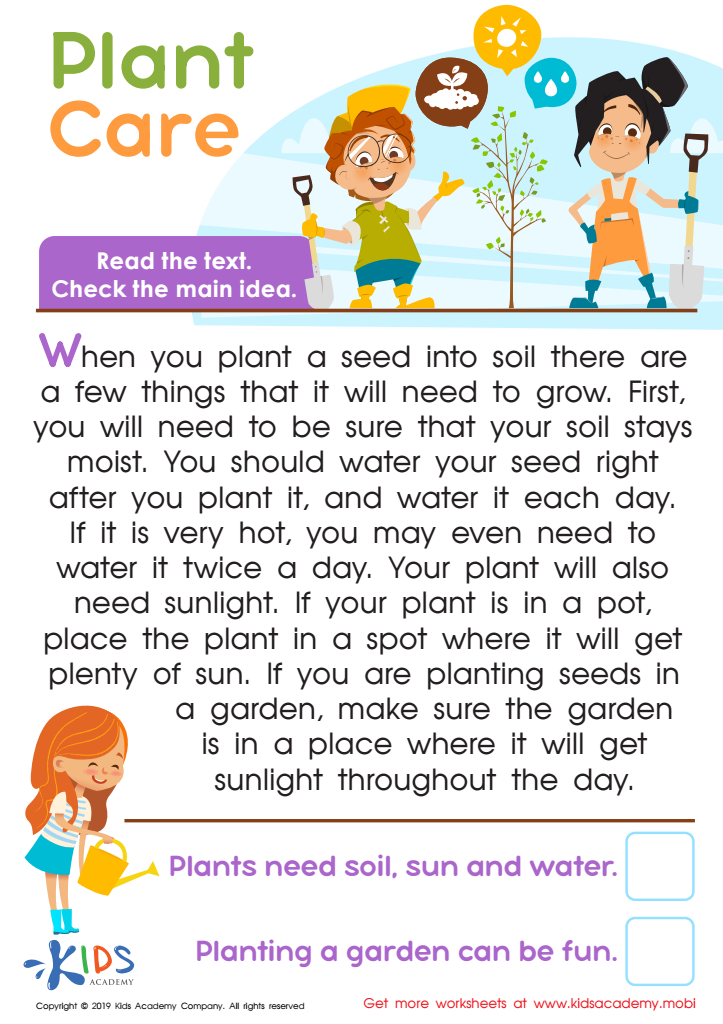

Plant Care Worksheet
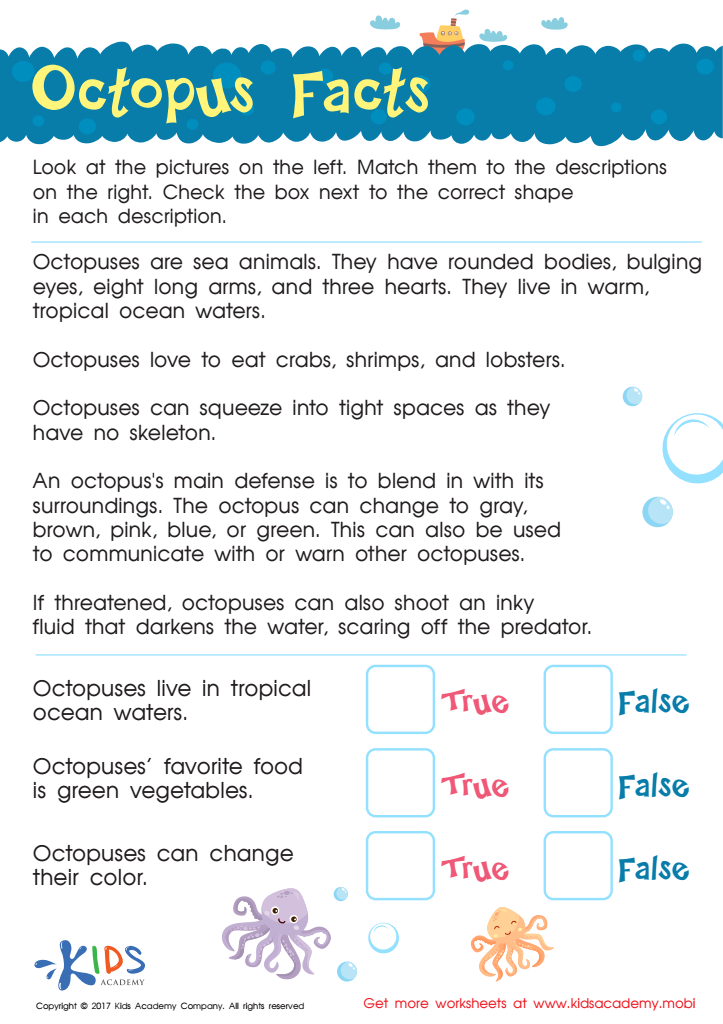

Octopus Facts Worksheet For Kids
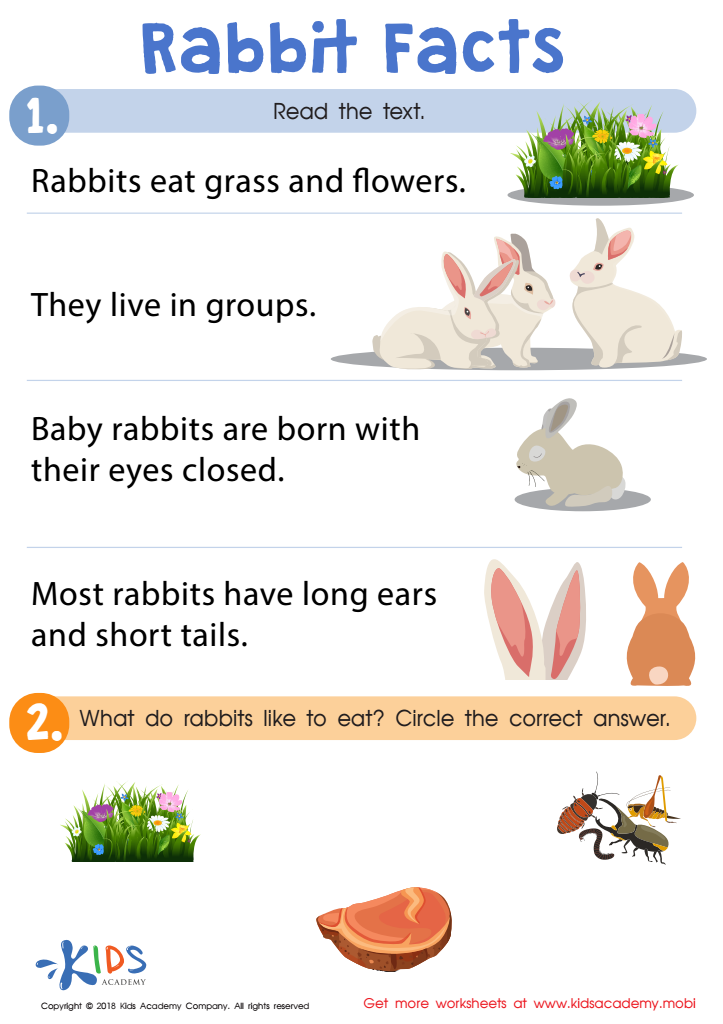

Rabbit Facts Worksheet
Vocabulary expansion through non-fiction reading is crucial for children aged 3-7, as it lays the foundation for effective communication and literacy. During these formative years, children are naturally curious and eager to learn about the world around them. Non-fiction books provide them with accurate information about various topics, from animals to space, fostering a broader understanding of concepts and stimulating critical thinking skills.
Parents and teachers play vital roles in guiding this learning process. By encouraging exposure to non-fiction texts, they enrich children's vocabulary, helping them grasp new words in meaningful contexts. This not only boosts their language skills but also enhances their reading comprehension, enabling them to understand text beyond just rote memorization.
Furthermore, vocabulary development is linked to academic success. A rich vocabulary helps children express their thoughts and feelings with clarity and precision, promoting better social interactions and confidence in language use. Encouraging an interest in non-fiction also instills a love for learning and exploration, as kids are fascinated by real-world knowledge. Ultimately, fostering vocabulary expansion through engaging non-fiction reading sets the stage for lifelong learning and equips children with the essential tools needed for both academic and personal growth.
 Assign to My Students
Assign to My Students








